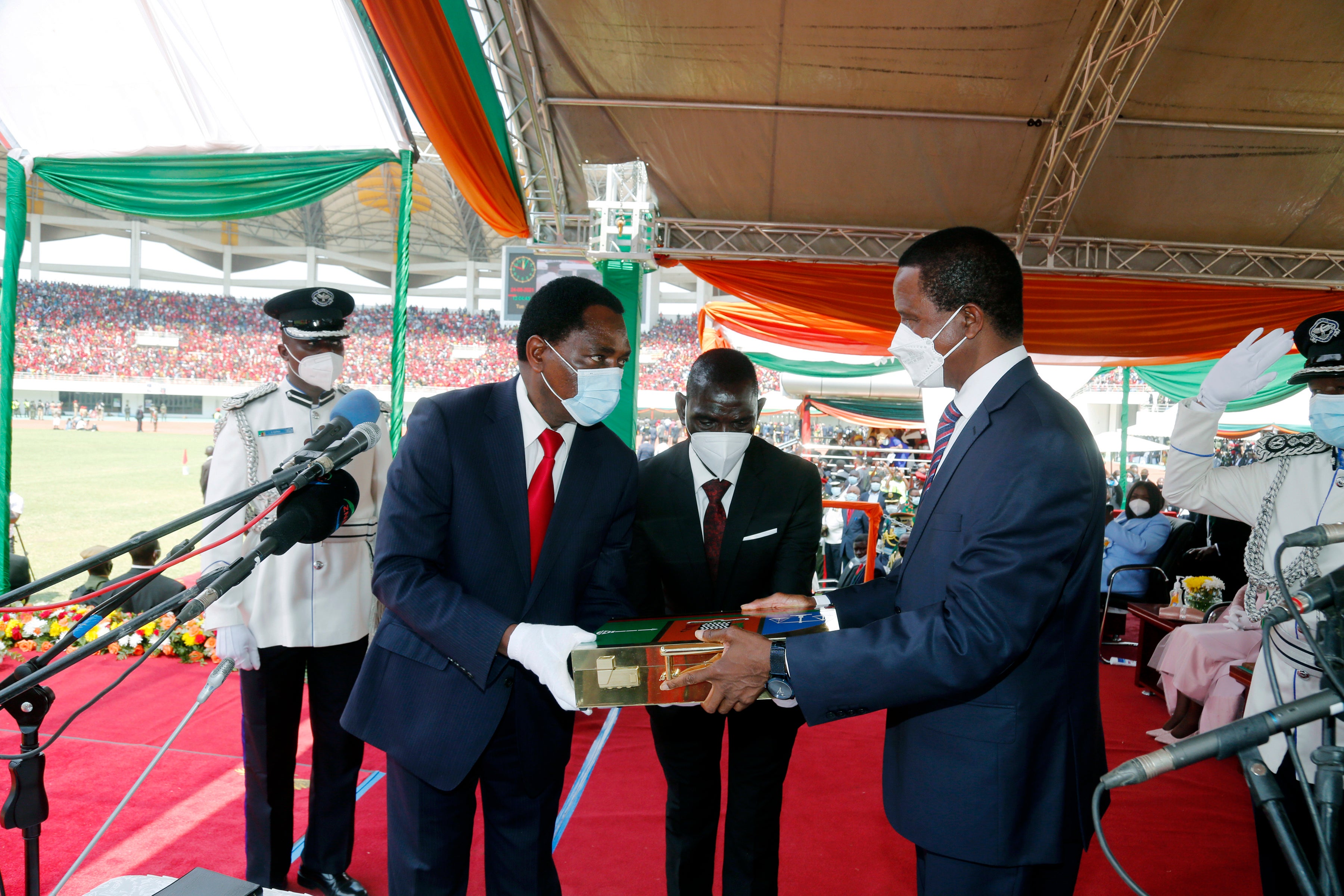Zambians cheer inauguration of new leader Hakainde Hichilema
Zambia’s new president, longtime opposition leader Hakainde Hichilema, has been sworn into power on Tuesday, raising hopes in the southern African country that in recent years has swung from prosperity and stability to massive debt, recession and repression

Your support helps us to tell the story
From reproductive rights to climate change to Big Tech, The Independent is on the ground when the story is developing. Whether it's investigating the financials of Elon Musk's pro-Trump PAC or producing our latest documentary, 'The A Word', which shines a light on the American women fighting for reproductive rights, we know how important it is to parse out the facts from the messaging.
At such a critical moment in US history, we need reporters on the ground. Your donation allows us to keep sending journalists to speak to both sides of the story.
The Independent is trusted by Americans across the entire political spectrum. And unlike many other quality news outlets, we choose not to lock Americans out of our reporting and analysis with paywalls. We believe quality journalism should be available to everyone, paid for by those who can afford it.
Your support makes all the difference.Zambia's new president, longtime opposition leader Hakainde Hichilema, has been sworn into power, raising hopes in the southern African country that in recent years has swung from prosperity and stability to massive debt, recession and repression.
“It’s a new dawn. Time has come for all Zambians to be truly free,” he said to a cheering crowd. Hichilema vowed to deliver a “united, prosperous and equitable Zambia.”
The 59-year-old convincingly won the tense, sometimes violent Aug. 12 elections by getting more than 2.8 million votes to outgoing president Edgar Lungu’s 1.8 million votes, achieving one of the biggest electoral wins in Zambia's history.
It was the sixth time that Hichilema ran for president since taking over leadership of the United Party for National Development in 2006. As opposition leader, he was arrested several times including on treason charges which were later dropped.
Hichilema narrowly lost two previous elections to Lungu in 2015 and 2016. His support grew in each of those polls and in 2016 he lost by just 100,000 votes.
Hichilema’s inauguration marks the third time that power has peacefully shifted to opposition parties in Zambia, cementing the country’s proud history of regular, relatively credible elections and peaceful transfers of power.
Fears of a reversal of those gains emerged recently as Lungu closed some media houses and detained critics such as Hichilema and, as defeat loomed, threatened to reject election results. Those fears were brushed aside as Hichilema and Lungu stood side by side at the inauguration ceremony which encouraged opposition leaders across Africa. Breaking with tradition, Hichilema invited as guests opposition leaders of neighboring Zimbabwe and South Africa to attend the ceremony along with incumbent leaders of their countries.
On Tuesday, state broadcaster Zambia National Broadcasting Authority showed masses of people garbed in the red colors of Hichilema’s party lining the streets of Lusaka, the capital, and cheering Hichilema's motorcade as it made its way to Heroes Stadium for the inauguration ceremony.
Celebrations engulfed the stadium, filled to its 60,000 capacity, as Hichilema took his oath before inspecting a military guard of honor and as air force jets flew overhead.
He paid gratitude to Zambia's youths who voted in large numbers and promised them jobs and support to start their own businesses. Hichilema pledged to use his business background to attract investment and promised he would have no tolerance for corruption.
He has the task of uniting a country of 18 million people with several political and ethnic divisions that were heightened during the election period. Zambia's battered economy is also a top priority.
Zambia recorded economic progress for more than a decade and achieved middle-income status in 2011, but now the country is beset by high inflation, high debt and allegations of corruption.
The COVID-19 pandemic hurt the already stuttering economy even further. Lockdown measures pushed Zambia into its first recession since 1998 and the economy contracted by 1.2%, according to the World Bank.
An easing of the lockdown measures in the latter part of 2020 and the global rise in copper prices resulted in some recovery, although inflation reached a high of 22% in February this year, according to the World Bank.
Hichilema becomes Zambia’s seventh president. The country's founding president, the late Kenneth Kaunda, ruled the country as a one-party state for more than two decades but in 1991 Kaunda agreed to multi-party politics and conceded defeat to the opposition following the 1991 poll.